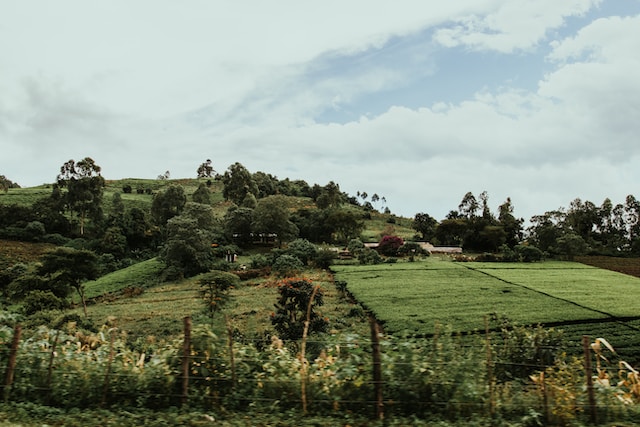
The already mixed image of the mass production of food took another knock recently with the publication of a BBC report highlighting sexual exploitation on Kenyan tea plantations. Although three managers proven to have been involved in such abuses were sacked, it remains to be seen whether anything will actually change for the better in future.
SEXUAL EXPLOITATION ON TEA PLANTATIONS
In its report, the media company BBC discovered that sexual abuse is a systemic problem on tea plantations in Kenya, and that until very recently, little or nothing was being done to combat it. When a female reporter succeeded in infiltrating a plantation, she, too, experienced sexual harassment. It turned out the process leading to the abuse was subject to a certain pattern, as managers on the sites exploited their power in order to demand sex from women applying for jobs on the plantations. Many of the women then found themselves confronted with a painful choice: if they rejected their managers’ unwanted advances, they might be given harder work or no work at all – a huge economic obstacle for them. On the other side, more than 70 female workers said they had been sexually abused, which was enormously stressful for them. Many viewed themselves as being forced to give in to the managers’ blackmail. The BBC showed that future workers, both female and male, were assured during their training that there was no place for sexual abuse on the plantations, and centres had been set up on the sites where they could report concerns or complaints. In reality, however, such “reporting systems” were ineffective, since the people whose job it was to hear such reports and complaints, and take them seriously, were worried about being victims of sexual abuse themselves. As a result, there was a complete failure to take any appropriate action. This was also shown and confirmed by the BBC using a hidden camera.
WHERE DOES IT GO FROM HERE?
The incidents in question caused outrage in the media, and ORF, too, reported it. The sacking of the three managers, however, did not produce a more just situation, because there is far more to the problem than meets the eye, and the sexual abuse of women on Kenyan tea plantations is unlikely to change any time soon, unfortunately. Tea cultivation in Kenya is directly responsible for something like 650,000 jobs in the country, and while the publication of the BBC report was right and important, the reality is that it probably only represented the tip of the iceberg as far as the overall situation is concerned.

It is simply tragic that people who are prepared, and in part forced, to do such back-breaking work (the work done on the plantations is very difficult physically, with many already reporting strong chronic back pain in their early years) should also experience abuse and disadvantage as the consequence of doing that work. The situation is made even more complicated by the fact that machines are increasingly being used to harvest the plantations, since this method produces economic benefits for the tea companies. This has seen the numbers of jobs slashed, meaning that both female and male applicants for those jobs are being forced into even harsher competition with one another, and are prepared to accept lower wages – or even unreasonable demands – from managers. If anything is really going to change for the better, it needs to be ensured that people working on the plantations receive a fair wage, and that they are democratically involved in the full range of working processes. More plantations signing up to the FairTrade system would also help create fairer working conditions and prevent abuse.
THE VIEW FROM AUSTRIA
Exploitation and abuse are realities unhindered by national borders, and they play a role in Austria as well. For one thing, the global economic system, of which the Austrian market is a part, of course, demands inequality and competition between people who don’t know one another and may live thousands of kilometres apart. By deciding to shop for their tea produced by major companies at the supermarket, the average Austrian consumer does bear some responsibility for ensuring that cases of abuse like those described above continue to accumulate in Kenya. But the situation will not be improved simply by passing on feelings of guilt regarding abuses to the average consumer. Instead, the first step and only possible starting-point in preventing abuse has to be to generate awareness of the problem. Real change will only happen, and solutions begin to be developed, when sufficient numbers of people become aware of just how unfairly power is distributed, how that power is abused for nefarious purposes, and of the far-reaching consequences personal action can have in a globalised world. Such change would be hugely welcome, of course, since the cases of abuse described in Kenya are not simply an isolated phenomenon which only happen when the media reports them. Imbalances of power and abuse take place on a daily basis, and in countries around the world. Drawing comparisons is inappropriate here, but in Austria, for example, packaging and food producers are forced to collude in such inhumane working conditions in order to stay in business. The Standard produced a report recently about packaging manufacturers being forced to work for up to 17 hours a day. Although this experience is a different one, and not comparable, the principle is the same as that underlying the cases of abuse in Kenya: a person exploiting their position of power to enrich themselves and consciously accepting human suffering to do so. It is impossible to imagine a world in which imbalances of power do not exist at all, of course. What is highly possible, however, is a world in which power is not abused – and ideally, is used for good purposes.
Translated by Tim Lywood
#Menschenrechte #Missbrauch #Kenia #Teeplantagen #EndTrafficking #Tea #Freiheit #AgainstHumanTrafficking #GegenMenschenhandel #EndExploitation #EndTrafficking #HopeForTheFuture #Österreich
